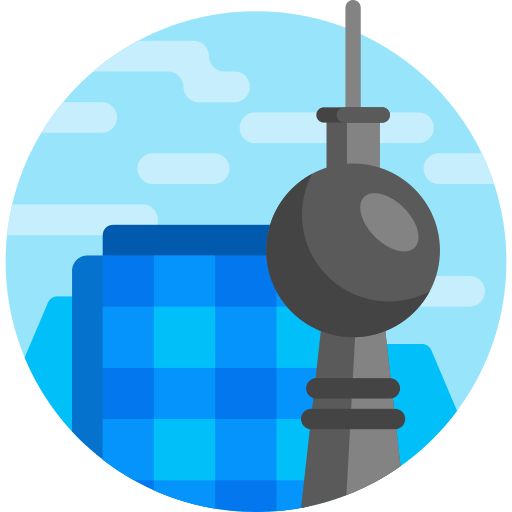Learning a new language can be challenging, especially when memorizing vocabulary. However, with the help of Babbel’s Language Learning Flashcards, mastering new words and phrases in a foreign language has never been easier.
Understanding grammar rules and sentence structure is important when learning a second language. However, building your vocabulary is equally essential. Communicating effectively in another language becomes possible with proper knowledge of keywords and phrases.
That’s where Babbel’s Language Learning Flashcards come into play — designed to help users memorize new vocabulary quickly and efficiently. In this article, we’ll discuss how these flashcards work and provide tips on maximizing their effectiveness for language learners of all levels.
Table of Contents
The Importance Of Vocabulary In Language Learning
The importance of vocabulary in language learning cannot be overstated. With a strong foundation of words, grammar rules, and sentence structures are helpful. Vocabulary is the backbone of communication and comprehension in any language.
Effective vocabulary acquisition strategies involve repetition, context, and personal connection to learned words. Repetition helps cement new words into memory, while context provides meaning and understanding. The personal connection allows for emotional attachment to the word, making it more likely to stick in one’s mind.
Babbel’s language learning flashcards utilize all these strategies to help learners master new vocabulary efficiently and effectively.
As we will see shortly, Babbel’s flashcards provide an engaging way to learn new words based on real-life scenarios that make them easier to remember. By incorporating visual aids like pictures and audio recordings from native speakers, Babbel ensures that its users have a comprehensive approach to mastering new vocabulary.
How Babbel’s Language Learning Flashcards Work
Babbel’s language learning flashcards are a powerful tool for building vocabulary in a new language. With interactive learning and visual aids, these flashcards make it easy to memorize words and phrases quickly. The cards come with pictures and audio recordings that help learners understand the meaning of each word or phrase.
One of the critical features of Babbel’s flashcards is their interactivity. Learners can swipe through the cards at their own pace, taking as much time as they need to learn each one. They can also listen to native speakers pronounce each word, helping them develop proper pronunciation. Additionally, the flashcards provide multiple-choice questions that test understanding and reinforce knowledge retention.
Using visual aids is another way Babbel’s flashcards enhance language learning. Images accompanying each card improve memory recall by associating individual words with concrete concepts. These images work together with audio recordings to create a multi-sensory experience that facilitates effective language acquisition.
Babbel’s flashcard program stands out as one of the best options on the market today by providing an engaging, immersive environment for learners to practice vocabulary skills.
As you begin using Babbel’s flashcards to build your foreign-language vocabulary, you should keep some tips and tricks in mind. From studying regularly to focusing on more challenging material first, there are many ways you can get the most out of this resource – so stay tuned!
Tips For Using Babbel’s Flashcards Effectively
To get the most out of Babbel’s language learning flashcards, it’s essential to use them effectively. These tips will help you optimize your experience and improve your vocabulary retention:
- Gamifying learning: Turn language practice into a game by setting goals for yourself and tracking your progress with Babbel’s statistics feature. You can even compete with friends who are also using Babbel.
- Spaced repetition: Take advantage of spaced repetition by reviewing words at increasing intervals over time. This method is highly effective in retaining new information.
To make the most out of your flashcard experience, try incorporating these tips into your routine. First, set aside regular study sessions to focus solely on practicing with the flashcards. Make sure to take breaks as needed to avoid burnout and fatigue.
Secondly, customize your settings to fit your specific needs — whether adjusting the difficulty level or choosing which exercises you prefer.
Finally, don’t forget to track your progress so you can see how far you’ve come!
Customizing Your Flashcard Experience
Now that you’ve learned some tips and tricks for using Babbel’s flashcards effectively, it’s time to take your learning experience to the next level. One way to do this is by utilizing personalized settings on the app.
With Babbel’s flashcards, you can customize your learning experience by selecting which vocabulary sets you want to practice, adjusting the difficulty level, and setting reminders for when you want to review certain words. Additionally, incorporating visual aids into your flashcard practice can help with memorization. For example, adding pictures or associating a word with an image in your mind can make it easier to recall later. Making these adjustments and personalizing your flashcard experience can enhance your language learning journey and improve your retention of new vocabulary.
| Flashcard Customization | Benefits |
|---|---|
| Choose specific vocabulary sets | Practice relevant words for daily life or career |
| Adjust difficulty level | Challenge yourself without feeling overwhelmed |
| Set reminders | Reinforce memory at optimal intervals |
Maximizing your vocabulary retention takes effort and intentionality, but it doesn’t have to be tedious with Babbel’s customizable flashcards. Experiment with different settings and techniques until you find what works best. Remember that every learner has a unique approach, so don’t be afraid to tailor your study habits accordingly. With continued dedication and persistence, mastering a new language is within reach!
Maximizing Your Vocabulary Retention
Once you start learning a new language, maximizing your vocabulary retention is crucial. Luckily, two effective methods can help: spaced repetition and mnemonic devices.
Spaced repetition is the process of reviewing material at increasing intervals over time. This technique helps reinforce new information in your long-term memory. When using flashcards for language learning, be sure to review them regularly but also space out the reviews so that you’re not simply memorizing words short-term.
With Babbel’s language learning flashcards, we incorporate this method into our app by showing users each word or phrase according to their progress and needs.
In addition to spaced repetition, another helpful tool is mnemonic devices. These techniques aid in memory retention through association with vivid imagery or other cognitive shortcuts. Some examples include creating acronyms, rhymes, or visualizations for new vocabulary words.
Connecting these mental images with the new words you’re learning makes them easier to recall later on. So whether you’re using Babbel’s flashcards or studying independently, incorporating spaced repetition and mnemonic devices into your routine will help make vocabulary retention a breeze!
Frequently Asked Questions
What Is The Cost Of Babbel’s Language Learning Flashcards?
When it comes to language learning, numerous tools are available in the market. However, not all of them are created equal.
For instance, Babbel’s language learning flashcards have gained popularity among learners due to their effectiveness and convenience. But how much do these flashcards cost?
Compared to other language learning tools, Babbel’s flashcards come at an affordable price that won’t break the bank. Plus, they offer a range of benefits, like improving vocabulary retention and aiding in quick recall during conversation practice.
So if you’re looking for an efficient and budget-friendly way to master a new language, Babbel’s flashcards might be your best bet!
Can Babbel’s Flashcards Be Used Offline?
Are you looking for a language learning tool that doesn’t require an internet connection?
Babbel’s flashcards offer offline functionality, meaning you can study vocabulary on the go without worrying about Wi-Fi access.
However, it’s important to note the technical requirements before using this feature. Ensure your device has enough storage space and download the necessary data beforehand.
With Babbel’s flashcards, you can conveniently improve your language skills anytime, anywhere, with or without an internet connection.
Are There Flashcards Available For All Languages On Babbel?
Flashcard effectiveness varies from person to person, but it can be a valuable tool for language learners. Babbel offers flashcards for various languages, making it easy to practice vocabulary on the go.
However, alternative study methods may work better for some individuals. It’s essential to find what works best for you and your learning style. Whether it’s through flashcards or other means, consistent practice is critical in mastering a new language.
Can Users Create And Share Their Flashcards On Babbel?
Flashcard customization and collaborative flashcard creation are two essential features for language learners who want to learn faster. With these features, users can create flashcards based on the vocabulary they need to memorize in a new language.
Collaborative flashcard creation allows multiple users to contribute to a single set of flashcards, making the learning process more engaging and interactive.
Babbel’s Language Learning Flashcards offer both of these features, allowing users to personalize their learning experience while benefiting from shared knowledge.
Whether you’re looking to improve your grammar or expand your vocabulary, Babbel’s customizable and collaborative flashcards make it easier.
Are There Any Gamification Elements Included In Babbel’s Flashcards?
Gamification benefits and memory techniques are essential for effective language learning. But finding a platform that incorporates these elements seamlessly is not always easy.
That’s why you’ll be pleased to know that Babbel’s flashcards have built-in gamification features! These innovative tools make vocabulary memorization more engaging and enjoyable by allowing users to compete against themselves or others while they learn new words.
With this approach, you’ll retain more information and enjoy the language acquisition process. If you’re looking for a fun and practical way to boost your language skills, try Babbel’s Language Learning Flashcards today!
Conclusion
In conclusion, Babbel’s Language Learning Flashcards effectively memorize vocabulary in a new language. The cost of the flashcards is included in the subscription fee for Babbel, making it accessible and affordable for users. Additionally, users can use flashcards offline, which is convenient for those who want to study without internet access.
Babbel offers flashcards for various languages, including Spanish, French, German, Italian, Portuguese, Russian, and more. However, users cannot create or share their flashcards on the platform now.
Despite this limitation, gamification elements are included in the flashcard system that makes learning fun and engaging.
Overall, if you’re looking to improve your language skills quickly and efficiently with an easy-to-use tool like Babbel’s Language Learning Flashcards, give them a try. With so many options available online today for language learning tools and resources — from apps to podcasts — it can be hard to know where to start.
But with Babbel’s tried-and-true approach based on years of research and development in language education technology coupled with its affordability and accessibility features such as offline mode usage, why not take advantage?
So what are you waiting for? Give Babbel’s Language Learning Flashcards a go!





